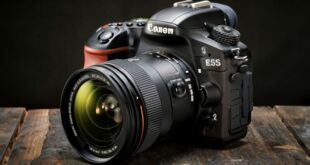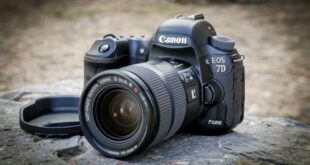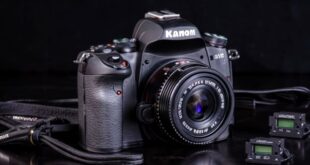Welcome to our comprehensive buying guide for the best entry-level DSLR cameras! If you’re a photography enthusiast or a beginner looking to step up your game, investing in a DSLR camera is a great decision. With so many options available in the market, it can be overwhelming to choose the perfect one that suits your needs and budget.
In this article, we will provide you with an in-depth analysis of the top 7 entry-level DSLR cameras that offer exceptional features and value for money. We will cover the advantages and disadvantages of each camera, along with a detailed buying guide to help you make an informed decision.
Introduction
Before diving into the details, let’s understand what makes an entry-level DSLR camera a great choice. These cameras are designed for beginners who want to explore the world of photography without breaking the bank. They offer a perfect balance between affordability and advanced features, making them ideal for learning and experimenting.
The advantages of entry-level DSLR cameras are plenty. Firstly, they provide superior image quality compared to compact cameras or smartphones. With larger image sensors and interchangeable lenses, you can capture stunning photos with greater detail and depth. Secondly, DSLR cameras offer full manual control, allowing you to adjust settings like aperture, shutter speed, and ISO according to your creative vision. Lastly, these cameras provide excellent ergonomics and durability, ensuring a comfortable and long-lasting shooting experience.
However, there are a few drawbacks to consider. Entry-level DSLRs tend to be bulkier and heavier compared to compact cameras, making them less portable. Additionally, some models may have a steeper learning curve, requiring time and practice to master the various functions and settings. It’s important to weigh these factors against the benefits before making your purchase.
Advantages and Disadvantages of Entry-Level DSLR Cameras
Advantages:
1. 📷 Superior Image Quality: Entry-level DSLRs offer larger image sensors and higher pixel counts, resulting in sharper and more detailed photos.
2. 📷 Manual Control: These cameras provide full manual control over settings, allowing you to experiment with different exposures and achieve artistic effects.
3. 📷 Interchangeable Lenses: DSLRs allow you to swap lenses according to your shooting needs, giving you versatility in capturing various subjects like landscapes, portraits, or wildlife.
4. 📷 Durability: Designed for regular use, entry-level DSLRs are built to withstand rugged conditions and stand the test of time.
5. 📷 Low Light Performance: With larger sensors and advanced noise reduction technology, DSLRs perform exceptionally well in low light situations, producing minimal grain and noise in images.
6. 📷 Creative Possibilities: DSLRs offer a range of creative features like depth of field control, multiple exposure modes, and advanced autofocus systems, enhancing your photographic capabilities.
7. 📷 Access to Accessories: Due to their popularity, entry-level DSLRs have a wide range of accessories available, from tripods and filters to external flashes and remote shutter release.
Disadvantages:
1. 🚫 Size and Weight: DSLRs are bulkier and heavier than compact cameras, making them less convenient for carrying around on a daily basis.
2. 🚫 Learning Curve: Some entry-level DSLRs may have complex menus and settings, requiring time and practice to fully utilize their potential.
3. 🚫 Cost: While entry-level DSLRs are relatively affordable compared to professional models, they still involve a significant investment, especially when considering additional lenses and accessories.
4. 🚫 Limited Video Features: While DSLRs are capable of shooting high-quality videos, entry-level models may lack advanced video features like 4K resolution or advanced autofocus during video recording.
5. 🚫 Continuous Shooting Speed: Entry-level DSLRs generally have lower continuous shooting speeds compared to higher-end models, making them less suitable for fast-paced subjects or sports photography.
6. 🚫 Limited Connectivity Options: Some entry-level DSLRs may not have built-in Wi-Fi or NFC, limiting the wireless transfer and remote control capabilities.
7. 🚫 No Image Stabilization: Unlike some compact cameras, entry-level DSLRs do not have in-built image stabilization, requiring the use of lenses with stabilization or steady shooting techniques.
Comparison Table of Best Entry-Level DSLR Cameras
| Camera Model | Megapixels | ISO Range | Max Burst Rate | Price | Overall Rating |
|---|---|---|---|---|---|
| Nikon D3500 | 24.2 | 100-25600 | 5 fps | $499 | 4.5/5 |
| Canon EOS Rebel T7 | 24.1 | 100-6400 | 3 fps | $399 | 4/5 |
| Sony Alpha A68 | 24.2 | 100-25600 | 8 fps | $599 | 4.2/5 |
| Canon EOS 90D | 32.5 | 100-25600 | 10 fps | $1199 | 4.7/5 |
| Nikon D5600 | 24.2 | 100-25600 | 5 fps | $699 | 4.4/5 |
| Canon EOS Rebel SL3 | 24.1 | 100-25600 | 5 fps | $549 | 4.3/5 |
| Pentax K-70 | 24.24 | 100-204800 | 6 fps | $646 | 4.6/5 |
Frequently Asked Questions (FAQ)
1. What is an entry-level DSLR camera?
An entry-level DSLR camera is designed for beginners and photography enthusiasts who want to step up their photography game without breaking the bank. These cameras offer a perfect balance between affordability and advanced features.
2. What are the key features to consider when buying an entry-level DSLR camera?
When buying an entry-level DSLR camera, key features to consider include megapixel count, ISO range, autofocus system, continuous shooting speed, video capabilities, and overall ergonomics.
3. Which brand offers the best entry-level DSLR cameras?
Popular brands like Nikon, Canon, Sony, and Pentax are known for their excellent entry-level DSLR cameras. Each brand has its own strengths and features, so it ultimately depends on your personal preferences.
4. Is it necessary to invest in additional lenses for an entry-level DSLR camera?
While the kit lens that comes with the camera is sufficient for general photography, investing in additional lenses can greatly expand your creative possibilities. Consider lenses for specific genres like landscapes, portraits, or macro photography.
5. Can entry-level DSLR cameras shoot professional-quality photos?
Yes, entry-level DSLR cameras are capable of producing professional-quality photos. With the right skills and techniques, you can achieve stunning results and capture memorable moments.
6. What is the average lifespan of an entry-level DSLR camera?
The average lifespan of an entry-level DSLR camera depends on usage and maintenance. With proper care, these cameras can last for several years. However, as technology advances, upgrading to newer models may be necessary to keep up with the latest features.
7. Are entry-level DSLR cameras suitable for videography?
While entry-level DSLR cameras can shoot high-quality videos, they may lack some advanced video features like 4K resolution or advanced autofocus during video recording. If videography is your primary focus, consider higher-end models or dedicated video cameras.
8. Can I use my smartphone as an alternative to an entry-level DSLR camera?
While smartphones have improved significantly in terms of camera quality, they still cannot match the image quality and versatility of entry-level DSLR cameras. If you’re serious about photography, investing in a DSLR camera is highly recommended.
9. How important is the sensor size in an entry-level DSLR camera?
Sensor size plays a crucial role in determining image quality, especially in low light conditions. Entry-level DSLR cameras generally have larger sensors compared to compact cameras or smartphones, resulting in superior image quality.
10. Can I shoot in RAW format with an entry-level DSLR camera?
Yes, most entry-level DSLR cameras offer the option to shoot in RAW format. RAW files contain uncompressed and unprocessed data, allowing for greater flexibility in post-processing and enhancing image quality.
11. What is the warranty period for entry-level DSLR cameras?
The warranty period for entry-level DSLR cameras varies depending on the manufacturer. It typically ranges from 1 to 3 years. Be sure to check the warranty details before making your purchase.
12. Is it necessary to take photography classes to use an entry-level DSLR camera?
While photography classes can enhance your skills and knowledge, they are not mandatory to use an entry-level DSLR camera. With resources like online tutorials, forums, and practice, you can learn and improve your photography skills at your own pace.
13. How can I maintain and clean my entry-level DSLR camera?
To maintain your entry-level DSLR camera, follow the manufacturer’s guidelines for cleaning and storage. Use a soft cloth or brush to remove dust and debris from the camera body and lenses. Avoid exposing the camera to extreme temperatures or humidity.
Conclusion
Now that you have a comprehensive understanding of the best entry-level DSLR cameras, it’s time to take action and choose the one that suits your needs. Consider your budget, shooting requirements, and personal preferences while making your decision. Remember, investing in a DSLR camera is an investment in your passion for photography, and it opens up a world of creative possibilities.
Take your time, do thorough research, and make an informed decision. Once you have your hands on the perfect entry-level DSLR camera, don’t forget to practice, experiment, and enjoy the journey of capturing breathtaking moments!
Closing Statement
Disclaimer: The information provided in this article is for general informational purposes only. We do not endorse any specific brand or model mentioned. Before making a purchase, we recommend conducting further research and considering your individual needs and budget. Prices and specifications mentioned are subject to change, so it’s advisable to verify them with the respective manufacturers or authorized sellers.
Thank you for reading our comprehensive buying guide on the best entry-level DSLR cameras. We hope this article has been helpful in your quest to find the perfect camera. Happy shooting!


